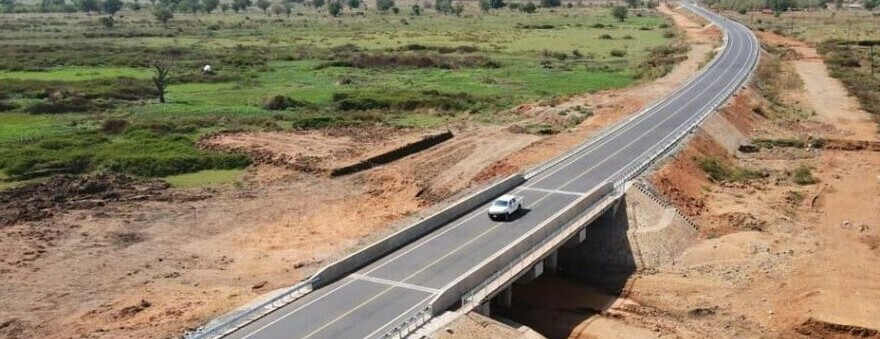Residents of Awerial County are enthusiastic about the initiation of the second phase of the Juba-Bahr el Ghazal road, as they anticipate the project will improve security and stimulate economic growth in the area.
On October 21st, Peter Kuot Jiel, the Undersecretary of the Ministry of Road and Bridges, officially announced the launch of the second phase of the Juba-Bahr el Ghazal road, spanning from Terekeka to Yirol. Before the second phase of the road reaches Yirol, it will pass through Awerial town.
Speaking to Radio Tamazuj from Mingkaman town, Philip Mawut Garang, the Commissioner of Awerial County, Lakes State, expressed his optimism about the tarmac road’s potential to bolster security and encourage interstate trade.
“The road will enhance trade since our proximity to Juba allows goods from Uganda through Juba to swiftly reach Awerial County. Additionally, businesses along the road will benefit from travellers who may stop and make purchases,” he said.
Mawut also highlighted the importance of well-maintained roads in expediting law enforcement’s response to incidents, stating, “This road will bring numerous advantages, such as easing transportation, allowing people to travel quickly from Mingkaman to Juba, and facilitating the swift transportation of sick individuals to Juba for medical care.”
The commissioner emphasized that security would be provided to construction workers and travellers along the Terekeka-Awerial road during the tarmac road’s construction.
Bishop David Akau Kuol of Awerial Diocese, Episcopal Church of South Sudan, commended the government for initiating this significant development project.
He described it as a fundamental step towards progress, stating, “As the church, we genuinely appreciate the country’s leadership for embarking on these developmental projects. When we have freedom, we anticipate positive changes and development.”
Local trader Willy Willy, who specializes in selling phones in Mingkaman, voiced his satisfaction with the road project. He highlighted the reduced travel time to Juba, explaining that it would significantly benefit traders and boost trade. Willy expressed hope that this trend of positive development would continue.
The 392-kilometer road project is being executed by Shandong Hi-Speed Nile Investment and Development Company Limited, representing a government effort to connect Juba City to the Bahr el Ghazal region.
While construction of the road from Juba to Rumbek via Terekeka and Yirol was initially projected to be completed in 36 months, it has taken four years to date. This construction began following President Salva Kiir’s announcement that 30,000 barrels of crude oil per day would be allocated to Chinese firms for infrastructure development.
The current status of this policy regarding crude oil allocation for infrastructure development remains uncertain.
On Wednesday, Auditor General Steven Wondu presented a report on the Juba-Rumbek road construction project to Parliament. The audit of the Juba-Rumbek road construction project has uncovered a series of issues, raising concerns about financial transparency, project management, and the overall quality of the road. The audit, conducted in February 2023, has exposed a range of problems that have plagued the project, including delays, unclear financial arrangements, and lack of proper oversight.
The audit also revealed discrepancies in the shipment of crude oil, which was supposed to fund the road construction. While records showed that a significant amount of oil had been shipped between 2019 and 2020, auditors could not determine how much of that oil was intended for the road project. Furthermore, no information regarding oil shipments for 2020, 2021, and 2023 was provided.




